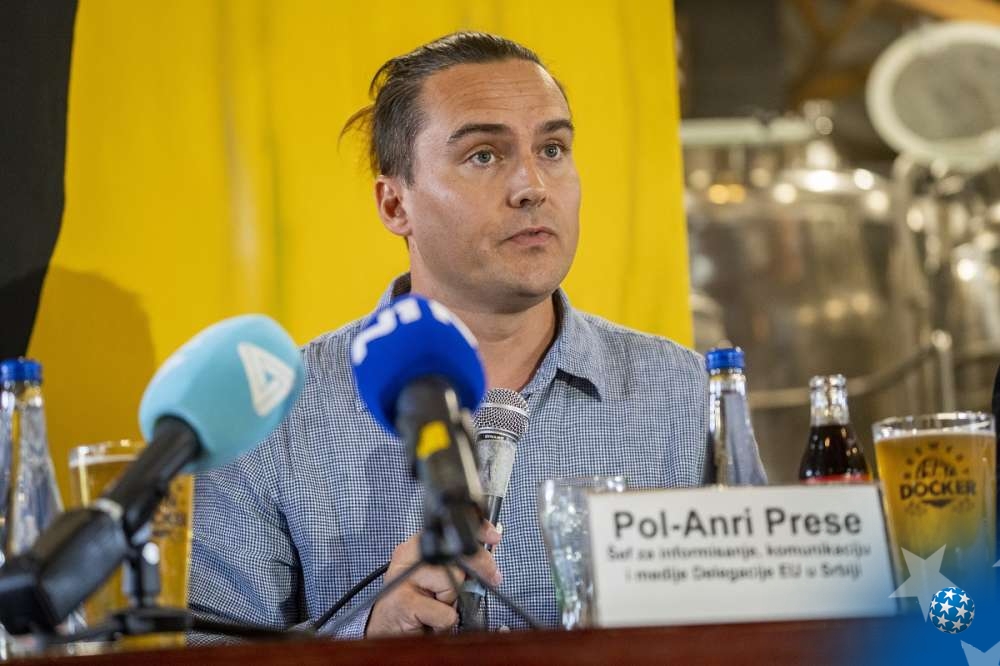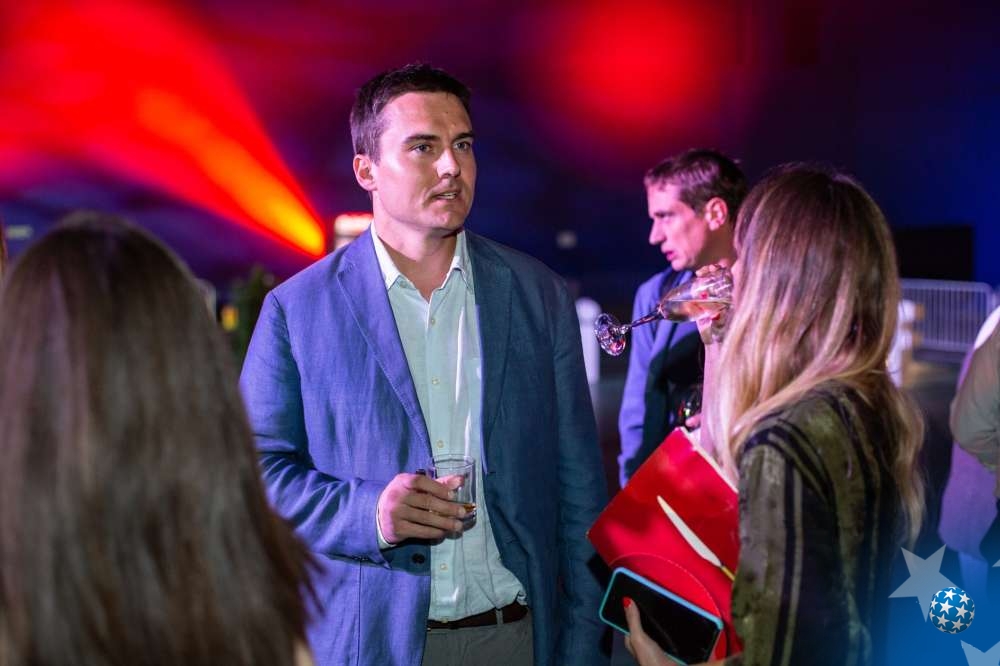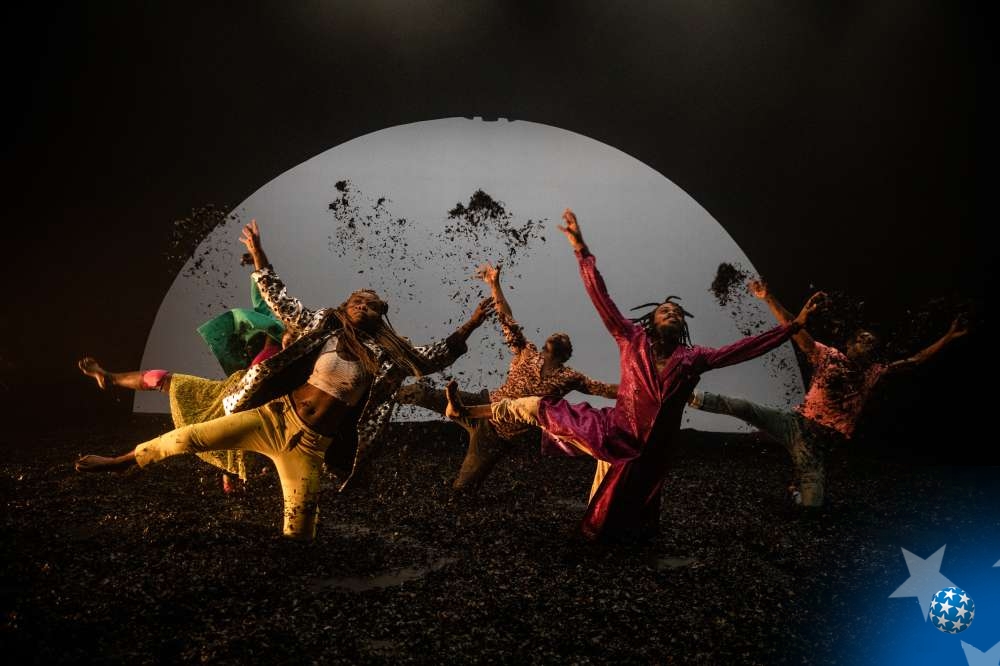You are leaving Serbia after a very successful tenure. What are some of the most memorable moments or achievements related to your work with the EU Delegation and cultural events in the country?
- Indeed, when readers read the interview and when this year's Bitef will start, I will already have left Serbia, and I will already be in my new position in Morocco. In 6 years in Serbia, we - as the European Union - have done so many concrete things in so many areas that it is hard to pick one memorable moment. But if you ask me about the cultural events we have organised, I need to talk about the amazing concerts we have done with young people throughout the years. There is the "Music of Hope" (Muzika nade) project, a beautiful Serbian initiative that teaches music to children from all kinds of backgrounds, ethnic groups and corners of Serbia that the EU is very proud to support in different forms. In 2019 these young musicians joined in an orchestra and made an amazing concert on Europe Day. There was such an energy: Dom Sindikata was full and singing, clapping, and dancing during the whole concert. In May 2022, we brought also young promising musicians from all over the Western Balkans to play together in the Western Balkans Youth Orchestra in Novi Sad. It was only a few weeks after the launch of Russia's full-scale invasion of Ukraine and - live on RTS - they sent a beautiful message of peace and unity showing the beauty we can create when we play in harmony. And in May 2023, it is the European Union Youth Orchestra that came to Belgrade - also as a show of solidarity towards the Serbian youth that had just suffered so much from the tragedies in Ribnikar and Mladenovac.
Bringing young people together, empowering them to create, and listening to them is always worth it.
The EU's support for the Bitef Festival has been consistent over the last few years, and it's fair to say that you have played one of the key roles in that. Could you share some of the key reasons why this ongoing support is so important?
- Supporting culture and creation is in the DNA of the European Union. We - as the EU - do not create or govern culture in any way but we know this is a fundamental element of European societies and our way of life. Art and culture make us all think, rethink and understand each other better and that it absolutely crucial in a continent like Europe which is so rich and diverse. This is why we support countries, peoples, artists, and citizens in, exploring, creating, performing, exchanging...
We are very proud to be - this year again - supporters of the Bitef festival. Every year Bitef brings the best of European theatre to Belgrade and at the same time brings Serbian theatre to the eye of other European theatre industries. This is an occasion for us in Belgrade and beyond to be confronted with new ideas, perceptions, and controversies and make us move forward. At the same time, it contributes to fostering cultural understanding and cooperation between Serbia and other countries of Europe.
So all in all, it's Bitef that actually supports the ideas and values that the European Union cherishes more than the EU that supports Bitef!
How has the cultural landscape in Serbia evolved during your tenure, and how do you see it continuing to evolve in the future?
- In Serbia, I have lived through the COVID-19 period which has dramatically impacted the cultural sector for several years. Times have been rough for festivals, artists, and creators, but they have been very resilient and imaginative during the crisis and came out strong. Belgrade is now definitely a stronghold of European culture. I have always been impressed by the level of ambition, pride, and almost arrogance of Serbian artists, creators and performers - and I mean it in a positive way. They are not afraid of taking their art and their pieces onto the world stage and confronting and it is a great thing because they have things to show and to say that are valuable to others. And Serbia is better and better integrated into European cultural networks - also thanks to the EU's Creative Europe programme - which means that artists, musicians, theatre directors, writers, and filmmakers can also find their audience in Europe and beyond. So I am optimistic for the cultural sector in Serbia and Serbian culture in general.
In parallel, it is also important that Serbia remains open to other cultures, artistic expressions and messages coming from Europe and beyond. Not everyone makes that effort but it is essential. Culture is best when shared.
What message would you like to convey to our audience, but also to the professional cultural community, in particular regarding the EU's commitment to this area?
- I would like to tell them once again how much Europe values them. That works for the cultural community but it is also valid for the whole of Serbian and the Serbian people. In Serbia, I have often been confronted with people who believe that Europe is not interested in Serbia and actually does not really care about Serbia joining the EU.
And I know for a fact that it is the opposite: working for the EU, I saw daily how much work is put - at all levels, in Brussels, at the EU Delegation in Serbia and in all EU Member States to bring Serbia closer to the EU until it becomes a full member. There is unanimity in the EU and among all its Member States that all want to have Serbia joining the EU. We know it is a good thing for the EU - to be able to count on Serbia's dynamism, creativity, and skills to contribute to making Europe a better, more sustainable, more prosperous more creative continent in the future.
On a personal note, what will you miss the most about your time in Belgrade? Do you have any favourite memories that you'd like to share with us?
- Belgrade feels like home to me now. My wife is from here and this is the place where my four children have spent almost all of their life. So for sure, I will miss many things from Belgrade, the people, the way of life, my colleagues, my friends, my tennis club, the many places I like... but what I'll miss most are my parents-in-law Nevenka and Todor, for the joy and love they brought to my family in these 6 years. As we worked for the EU in Brussels, my wife and I have both lived for a long time far away from home and our families and it's been a blessing that we got the chance to move to Serbia and that our young children could grow up by the side of baba i deda. That is irreplaceable.
We are now moving to Morocco, which is an incredible country with natural beauties, rich culture, and amazing people, so we are also excited to start this this new adventure. But I know that sooner or later, I'll be back in Serbia.


